

Slow Wave Sleep and Memory
Stage II sleep may be important for memory consolidation, especially for motor procedural tasks like playing the game “Operation”. Slow wave sleep is also important in memory.
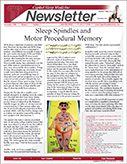
Sleep Spindles and Motor Procedural Memory
REM sleep is important in memory consolidation. However, the idea that only REM sleep and no other stage of sleep is important in memory consolidation was a result of some of the early studies during the 1970s and 1980s that demonstrated that REM sleep would increase after learning but the same increase would not be seen for slow wave sleep.
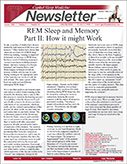
REM Sleep and Memory – Part II: How it might Work
In rats, a number of studies have demonstrated the link between REM sleep and memory. Other studies have shown that when rats are deprived of REM sleep following training, learning is impaired.
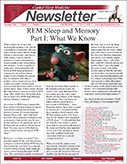
REM Sleep and Memory – Part I: What We Know
What evidence do we have that dreaming has anything to do with the consolidation of memories? The idea stems from the notion that if a dream reflects events recently experienced while awake, it may be that the rehearsal of learned information in dreams results in their consolidation into memory.

Memory Replay of the Day
Memory studies performed in rats have shown that the sequence of neuronal firing in the hippocampus while the animal is learning a new task or experience is later also seen during sleep.

REM Sleep Windows
Some of the most impressive research on REM sleep and memory to date is that of REM sleep windows. The nutshell of what this research shows is that there are specific time windows following learning during which REM sleep must be allowed to occur in order for the consolidation of memory to occur.

The History of Sleep and Memory
Back in 1885, a researcher named Ebbinghaus was interested in how long it takes the brain to consolidate memories. He wanted to determine the optimum time required in the consolidation of a memory, but he was concerned that if actual words were used, participants in the study may be more or less familiar with certain words which could then affect the ease or difficulty of learning them.
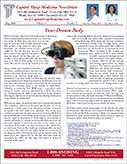
Your Dream Body
When you dream, what is your real body doing? In REM sleep, there is a substantial disconnect between your mind and your body. In REM sleep your brain may be very busy but your real body remains paralyzed in bed.

Your Dream World
Can recent waking experiences influence the construction of the dream world? A simple yet brilliant study was performed in which subjects wore goggles with red filters throughout the day that excluded all other wavelengths of visible light.
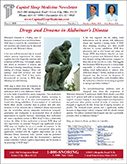
Drugs and Dreams in Alzheimer’s Disease
Alzheimer’s dementia is a leading cause of dementia, or memory loss in the United States. REM sleep is crucial for the consolidation of new memories and dreams may be abnormal in patients with Alzheimer’s disease.

Dreams in the Sighted and in the Blind
Dreams are typically quite visual. How is vision represented in the dreams of normally sighted subjects? A question frequently heard by sleep medicine patients is “Does every normally sighted subject dream in color?”

REM Rebound with CPAP Therapy
Although dream imagery can occur during other stages of sleep, Rapid Eye Movement (REM) sleep is loosely known as dream sleep. The hallmarks of REM sleep are a low voltage mixed frequency EEG, low muscle tone, and bursts of rapid eye movements punctuated by periods when the eyes remain relatively motionless.
